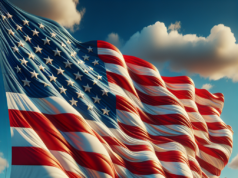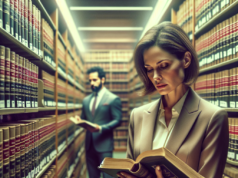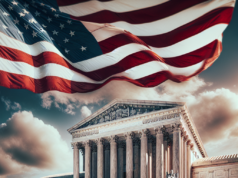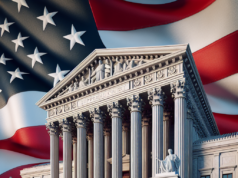High-profile trials have long captivated the public’s imagination, serving as a dramatic intersection of law, media, and celebrity. These legal battles often unfold under the intense scrutiny of the public eye, revealing not only the intricacies of the judicial system but also the societal values and cultural tensions of the time. From the courtroom to the living room, these trials have become a form of entertainment, sparking debates and discussions that resonate far beyond the verdicts rendered. This article explores the evolution of high-profile trials, their impact on American culture, the role of media and celebrity, and the broader implications for justice and society.
The Evolution of High-Profile Trials: A Historical Perspective on Legal Drama
The phenomenon of high-profile trials can be traced back to ancient civilizations, where public trials were often spectacles that drew crowds and influenced societal norms. In the United States, the legal landscape began to shift dramatically in the 20th century, particularly with the advent of mass media. The Scopes Monkey Trial of 1925, which debated the teaching of evolution in schools, marked a pivotal moment in American legal history, showcasing the intersection of law, science, and public opinion. As television emerged in the mid-20th century, trials such as the Nuremberg Trials and the trial of Lee Harvey Oswald captured global attention, setting the stage for the media-saturated courtroom dramas that would follow. The O.J. Simpson trial in the 1990s epitomized this evolution, as it became a cultural phenomenon that transcended the legal proceedings, influencing public discourse on race, celebrity, and justice.
Case Study: The O.J. Simpson Trial and Its Impact on American Culture
The O.J. Simpson trial, which took place from 1994 to 1995, stands as one of the most significant legal battles in American history. The case, involving the murder of Simpson’s ex-wife Nicole Brown Simpson and her friend Ron Goldman, captivated the nation and became a focal point for discussions about race, domestic violence, and the criminal justice system. Simpson, a beloved sports figure, was charged with the murders, and the trial was marked by dramatic courtroom exchanges, sensational media coverage, and a racially charged atmosphere. The verdict of not guilty ignited widespread debate and division, highlighting the deep-seated racial tensions in America. This trial not only changed the landscape of legal proceedings but also influenced how the media covers crime and justice, setting a precedent for future high-profile cases.
Media Influence: How Coverage Shapes Public Perception in High-Profile Cases
The role of media in high-profile trials cannot be overstated; it serves as both a conduit for information and a powerful influencer of public perception. The 24-hour news cycle and the rise of social media have transformed how trials are covered, often prioritizing sensationalism over substantive reporting. In the case of the Simpson trial, the media frenzy created a narrative that shaped public opinion long before the jury reached a verdict. This phenomenon raises ethical questions about the responsibility of journalists and the potential for bias in reporting. The constant barrage of information can lead to a “trial by media,” where public sentiment may influence judicial outcomes, thereby complicating the pursuit of justice. As seen in subsequent high-profile cases, such as those involving celebrities like Michael Jackson and Harvey Weinstein, media coverage continues to play a critical role in shaping narratives and influencing societal attitudes toward the accused and the legal system.
The Role of Celebrity in Trials: Fame, Fortune, and the Courtroom
Celebrity status adds a unique layer of complexity to high-profile trials, often overshadowing the legal proceedings with the allure of fame and fortune. Celebrities like O.J. Simpson, Michael Jackson, and more recently, Johnny Depp and Amber Heard, have found their personal lives thrust into the spotlight, where their public personas can heavily influence jury perceptions and public opinion. The intersection of celebrity culture and the judicial system raises questions about fairness and equality under the law. In some instances, the wealth and resources available to celebrities allow them to mount formidable defenses, potentially skewing the scales of justice. Conversely, the intense scrutiny and public interest can lead to a form of trial by public opinion, where the accused may suffer reputational damage regardless of the legal outcome. This dynamic underscores the need for a careful examination of how celebrity status impacts the judicial process and the pursuit of justice.
Landmark Verdicts: Analyzing the Outcomes of Notorious Legal Battles
The outcomes of high-profile trials often resonate far beyond the courtroom, serving as landmark moments that shape legal precedents and societal norms. Verdicts such as the acquittal of O.J. Simpson and the conviction of Harvey Weinstein have sparked widespread discussions about justice, accountability, and the societal implications of these decisions. The Simpson trial, for instance, highlighted issues of race and domestic violence, prompting a national conversation about the intersection of these critical topics with the legal system. Similarly, the Weinstein trial marked a significant moment in the #MeToo movement, reflecting a societal shift toward holding powerful individuals accountable for sexual misconduct. These landmark verdicts not only influence public perception but also prompt legislative and policy changes, illustrating the profound impact that high-profile trials can have on the fabric of society.
Lessons Learned: The Implications of High-Profile Trials on Justice and Society
High-profile trials serve as a mirror reflecting the complexities of justice and societal values. They expose the strengths and weaknesses of the legal system, often revealing systemic issues such as racial bias, socioeconomic disparities, and the influence of media. The sensational nature of these trials can overshadow the pursuit of justice, leading to a public that is more engaged with the drama than the legal principles at stake. As society grapples with the implications of these trials, it becomes essential to recognize the need for reforms that address the challenges posed by media influence, celebrity culture, and public opinion. Ultimately, high-profile trials can serve as catalysts for change, prompting discussions about fairness, accountability, and the fundamental principles of justice that underpin society.
In conclusion, high-profile trials are more than mere legal battles; they are cultural phenomena that reflect the complexities of justice, media influence, and societal values. As these trials continue to unfold in the public eye, they challenge us to consider the implications of fame, fortune, and public perception on the legal system. The lessons learned from these notorious cases can guide us toward a more equitable and just society, reminding us of the delicate balance between the pursuit of truth and the spectacle of drama that often accompanies high-profile legal proceedings.






























